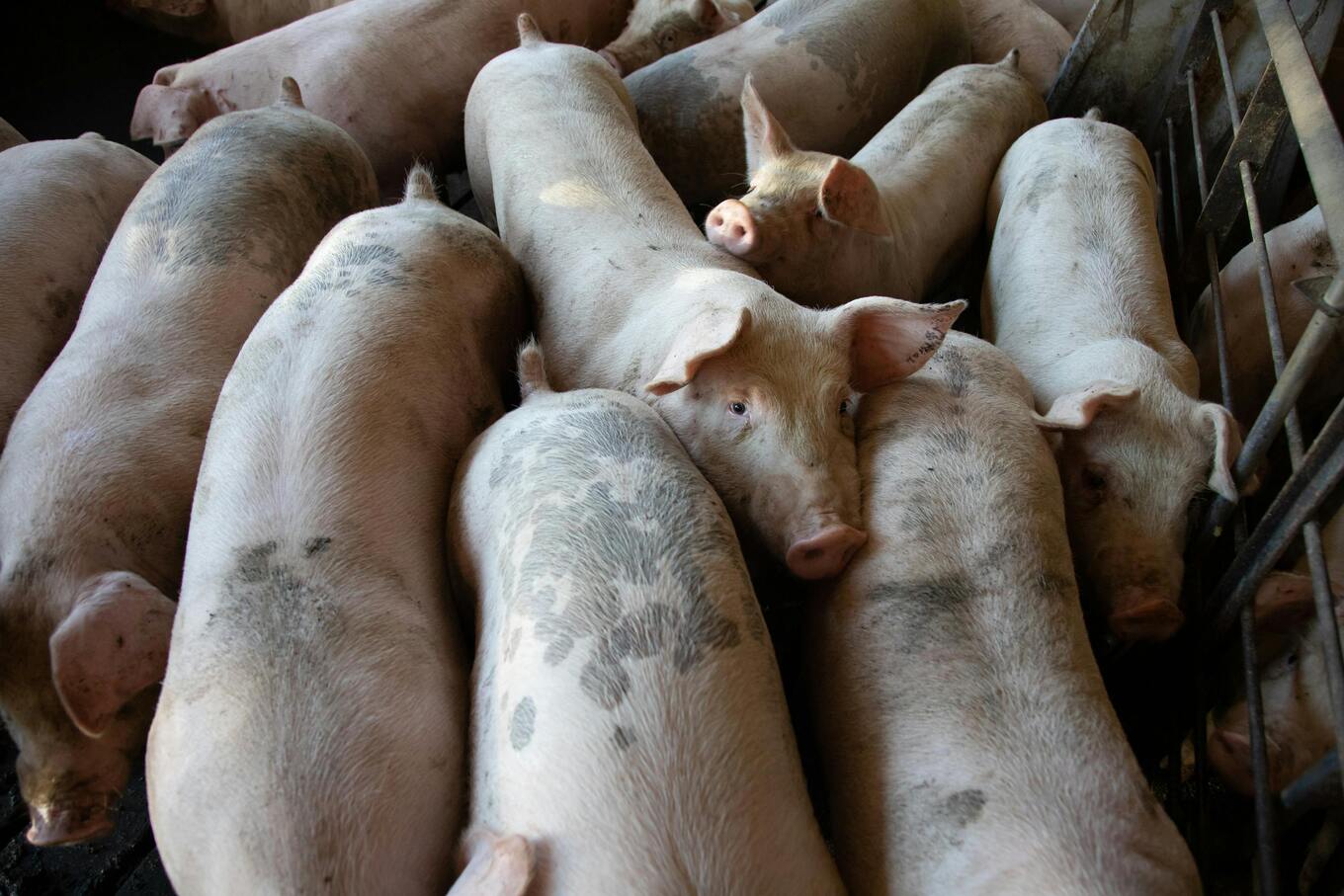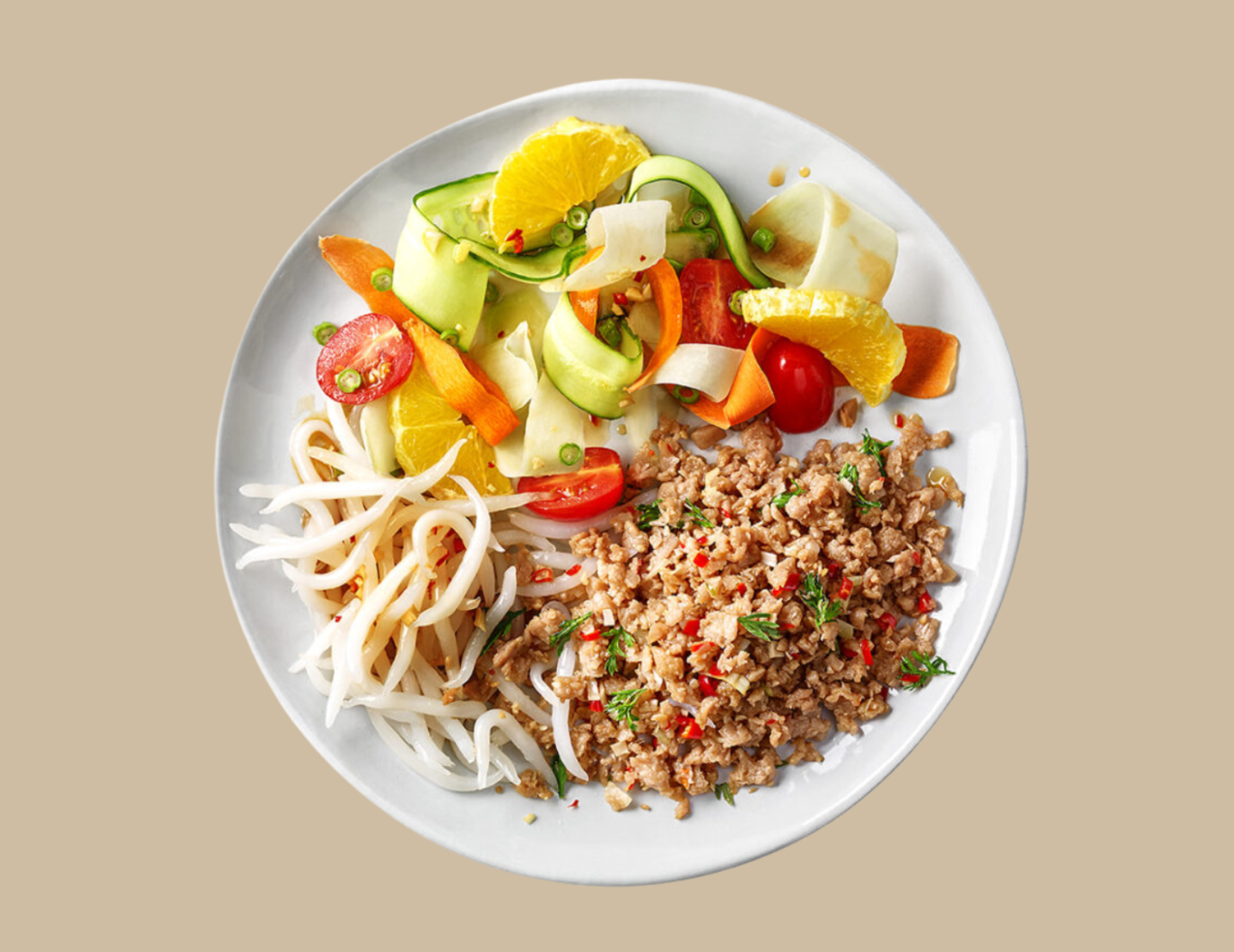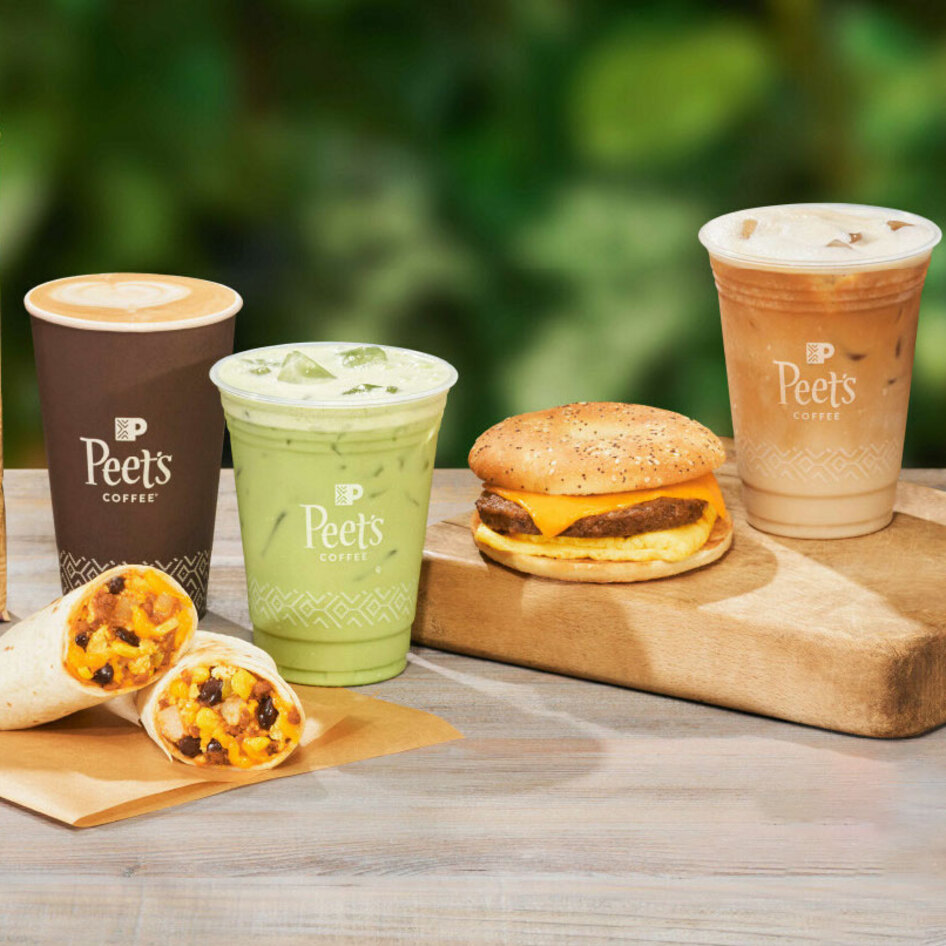In China, if you’re talking about meat, you’re likely talking about pork. It’s the country’s most popular animal product by a long way—in 2021, 57 million tons of pork was consumed in traditional dishes like Tángcù, for example, which refers to sweet and sour ribs, and hóngshāo ròu, which is red braised pork belly. But pork is also an ingredient in modern recipes. Starbucks, which has more than 6,800 locations across China, just launched the world’s first pork latte in the country—oat milk optional.
Why is there pork in Starbucks’ new latte?
A meat coffee is certainly unusual—it’s a far cry from the standard sugary syrup offerings you’ll find at most Starbucks locations around the world. But the new beverage, which hit menus in China on February 10, is called the Abundant Year Savory Latte and aims to honor the Lunar New Year.
It includes a shot of espresso, Dongpo pork sauce, a slice of braised pork, and steamed milk. As well as cow’s milk, Starbucks China offers oat and almond milk in stores.
 Pexels
Pexels
Some customers are not sure about the new meaty offering, which costs 68 Chinese yuan, or $9.50 in USD. According to Business Insider, while some users on Xiaohongshu (a Chinese social media platform) called the beverage “intriguing,” another called it “disgusting.”
According to the chain, the latte was created in a bid to “integrate traditional New Year customs into coffee,” and because “eating meat means prosperity in the coming year.”
However, meat isn’t essential for Lunar New Year or Chinese New Year celebrations, and many people across China choose to celebrate the occasion, which started on February 10 and lasts around 16 days, without animal products.
You can find many vegan Lunar New Year recipes in our list here, as well as tips from Serena Poon, a celebrity chef and nutritionist, on how to enjoy traditional Chinese dishes with plant-based foods.
Are pork lattes in line with Starbucks’ sustainability promises?
A pork latte is controversial, not just because of the taste, but also because pork is far from environmentally friendly. This is despite the fact that Starbucks has pledged to improve the sustainability of its global supply chain.
“At Starbucks, we promise to give more than we take from the planet. Our comprehensive approach is built on our commitment to build a more sustainable, equitable, and resilient future for coffee, farmers, communities, and our planet,” a recent statement on the Starbucks News & Stories platform, for example, reads.
But animal agriculture is a leading driver of the climate crisis, contributing to 14.5 percent of all global greenhouse gas emissions. In perspective, aviation is responsible for two percent of emissions.
 Pexels
Pexels
Pig farming, in particular, is also a major disease threat. In recent years, China has lost around 100 million pigs to African swine fever. In an attempt to improve its pork production, it has begun to build high-rise factory farms to house millions of pigs. This has prompted an outcry from animal-rights activists but also scientists concerned about another pandemic and the ever-present threat of the climate crisis.
After all, experts have warned that we need to decrease meat consumption, not increase it if we are to attempt to tackle rising temperatures.
“The higher the density of animals, the higher the risk of infectious pathogen spread and amplification, as well as potential for mutation,” Dirk Pfeiffer, chair professor at One Health at City University of Hong Kong, told the Guardian. “The probably even more important question will be whether this type of production is consistent with the need to move towards reduced meat consumption, considering the apparently unstoppable threat of devastating climate change.”
Pork latte aside, there are vegan-friendly options at Starbucks China
Aside from the new Abundant Year Savory Latte, it’s important to note that there are vegan options on the menu at Starbucks China locations. Customers can order drinks like Oat Milk Velvet Lattes and Hazelnut Flavored Almond Lattes, for example.
For those who enjoy the taste of pork, but not the idea of pig meat, select locations also offer food options made with OmniPork, a vegan pork-style protein by OmniFoods, a popular Hong Kong-based plant-based meat brand. OmniPork first launched in Starbucks China in 2020, just a few months into the COVID-19 pandemic, alongside vegan products from California-based brand Beyond Meat.

“Our new menu items make it easy and enjoyable to explore new lifestyles, starting from what we eat and drink,” Leo Tsoi, Senior Vice President, Chief Operating Officer, and President, of Starbucks China Retail, said in a statement at the time. “Through our new plant-based platform, we seek to inspire new routines by inviting everyone to eat good, feel good and do good. Together, we can take a small, humble step to make a better world.”
For more on Starbucks’ vegan options around the world, you can find all of our stories on the global coffee giant here.
For the latest vegan news, read:
JUMP TO ... Latest News | Recipes | Guides | Health | Shop









